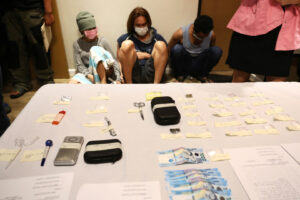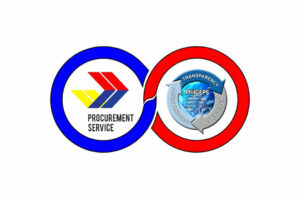A new chapter in PHL foreign relations

“A friend to all and an enemy to none” was the phrase used by President Ferdinand “Bongbong” Marcos, Jr. to define his independent foreign policy. To a large extent, this signifies continuity with reference to past presidents’ standpoint, domestically and internationally.
Change, however, lies on the dynamics involved in operationalizing the policy amid the ever-changing global environment of interconnectedness and uncertainty.
In his first State of the Nation Address, Mr. Marcos Jr. emphasized that in the pursuit of this independence, he will “not preside over any process that will abandon even a square inch of territory of the Republic of the Philippines to any foreign power.”
With regard to the West Philippine Sea issue, the credibility of the Philippines as a regional and global actor was undermined by the foreign policy direction of the past administration. It also resulted in the loss of trust in the government’s ability in protecting our territorial rights over its waters — in general, our national sovereignty.
Nevertheless, public opinion remains consistent on whether the Philippine government should assert the 2016 arbitral ruling, according to Pulse Asia. In December 2016 and at the height of the historic win, 84% of Filipinos agreed that the ruling should be asserted. In June 2022, this figure increased, with 89% of Filipinos agreeing that the Marcos Jr. administration must assert our rights over the West Philippine Sea.
In this regard, the new administration has already made strategic steps in committing to protecting the West Philippine Sea.
Mr. Marcos Jr.’s appointments in the Department of Foreign Affairs (DFA) and Department of National Defense (DND) have signaled a more decisive government response to this issue. DFA Secretary Enrique Manalo and DND Officer-in-Charge Jose Faustino, Jr. have not only been vocal on their stand on the West Philippine Sea issue; they have also laid out their respective agenda and brought to the table their experience to build on this independent policy.
Mr. Faustino reflected, in his recently released 10-point agenda, the need to shift from an internal to an external defense posture. He has seen the development of the country’s defense credibility from the inside and has his eyes set on strengthening the Armed Forces of the Philippines (AFP) for territorial defense.
His perception is consistent with the Pulse Asia survey where 90% of Filipinos agree that investing on the capability building of the Philippine Navy and the Philippine Coast Guard is critical to protecting our territory. Key to this will be keeping the AFP Modernization Program on track to achieve external defense capability to address the different security challenges —traditional and non-traditional — emerging today and maintaining good relations with strategic partners in the region.
Mr. Manalo has also been clear regarding the finality of the 2016 arbitral ruling and that it “is no longer within the reach of denial and rebuttal.” In the same Pulse Asia survey, 84% of Filipinos agree that alliance building should be a key priority in defending the West Philippine Sea. Given the seasoned diplomatic career of Mr. Manalo, he brings to the table demonstrated skills and deep understanding of international politics and engagement with the international community.
It is in the aspect of investing to protect our marine resources in our exclusive economic zones (EEZ) that Mr. Marcos Jr. could further leverage stronger alliances and promote the country’s partnership with like-minded states.
The positive and encouraging reaction of the French Ambassador to the Philippines Michèle Boccoz to the President’s “strong” stand in protecting the country’s territory is a good case in point.
Ms. Boccoz’ commitment to further increase engagement with Manila clearly points to maritime cooperation, defense, and development. She even spelled out that France and the Philippines could enhance cooperation in maritime security or reopen discussions on possible joint patrols within the country’s EEZ.
The conduct of joint maritime patrols, the provision of modern naval equipment, and other important aspects of maritime security should be pursued.
Further, sustained engagement with France will not only consolidate 75 years of friendship and partnership, but will also broaden and bolster the country’s alliance network.
The same Pulse Asia survey says that the top-of-mind trustworthy country is still the United States of America (89%), followed by Australia and Japan, at 79% and 78% respectively. Meanwhile, the third trusted countries are Germany (69%), South Korea (65%), Great Britain (64%), Indonesia (60%), and India (51%).
Staying on course in this independent foreign policy will not be easy; the complexity of foreign policy and security issues has always been relative to the inherent level of power of a state.
In the case of the Philippines, the current administration must be able to effectively and efficiently allocate the country’s resources, in line with its policy prioritization agenda, current to long-term plan for infrastructural, institutional, and human capacity, and overall national development and security strategy.
The Marcos Jr. administration must also be strategic, responsive, and considerate to the country’s developmental needs as well as the current state of national affairs, which will serve as the basis of a clearer program for regional and international engagements.
Victor Andres “Dindo” C. Manhit is the president of the Stratbase ADR Institute.




